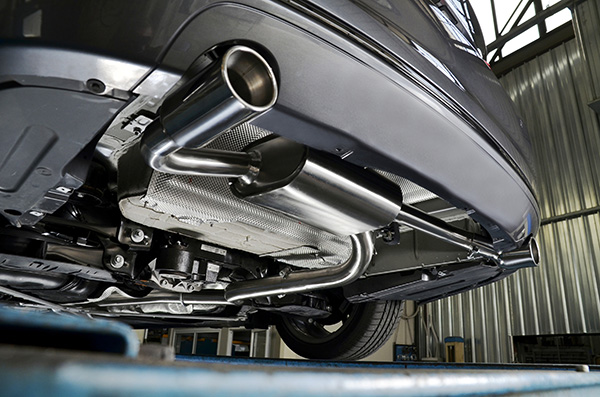
A loud exhaust isn’t just an attention-grabber; it’s also a potential red flag. While some car enthusiasts might enjoy the aggressive roar of a modified exhaust system, not all loud noises are created equal. If your car’s exhaust suddenly sounds louder than usual, it might be trying to tell you something important. Whether you're navigating the roads of Acworth, GA, or heading out for a longer trip, understanding what’s behind the noise is essential for your safety and the health of your vehicle.
What Causes a Loud Exhaust
A noisy exhaust isn’t always about aesthetics or modifications. Often, it’s a sign that something is wrong with your car’s exhaust system. Here are some common culprits:
Exhaust Leaks
Over time, the components of your exhaust system can wear out, crack, or rust, leading to leaks. These leaks often occur in the exhaust manifold, pipes, or muffler. When gases escape through a hole or gap instead of flowing through the muffler, the result is a loud and disruptive noise.
Damaged Muffler
The muffler’s primary job is to minimize noise from the engine. If it’s damaged or has developed holes, it won’t be able to perform its function properly. A failing muffler not only makes your car loud but can also allow harmful fumes to seep into the cabin.
Loose Connections
Your exhaust system consists of multiple interconnected parts. If clamps or bolts become loose, the exhaust pipes may rattle or create unusual noises, which can be mistaken for a loud exhaust issue.
Catalytic Converter Issues
The catalytic converter helps reduce harmful emissions from your car. If it becomes damaged or clogged, it can cause unusual sounds and disrupt the exhaust system’s normal function.
Is It Safe to Drive with a Loud Exhaust
Driving with a loud exhaust might seem like a minor inconvenience, but it can lead to serious safety and legal issues. Here’s why it’s worth addressing sooner rather than later:
Compromised Safety
A loud exhaust can indicate an underlying problem, such as a leak. Exhaust leaks may release carbon monoxide into your car’s cabin, posing a significant health risk. Even if you don’t notice symptoms like dizziness or fatigue right away, prolonged exposure can be dangerous.
Reduced Vehicle Efficiency
A failing exhaust system can affect your car’s overall performance. You might notice reduced fuel efficiency or sluggish acceleration. Ignoring these signs can lead to further damage to your engine and emissions system.
Legal Implications
In many places, including Georgia, excessively loud vehicles can result in fines or citations. A damaged exhaust system that doesn’t meet local noise regulations could leave you with an unexpected ticket.
How to Identify the Problem
If your car’s exhaust is louder than normal, paying attention to the following can help you pinpoint the issue:
- Listen for Changes: Does the noise occur when you accelerate, idle, or at all times? Different patterns can indicate different problems.
- Look for Visual Clues: Check for visible damage, rust, or holes in your exhaust pipes or muffler.
- Smell for Trouble: A strong odor of exhaust fumes inside or outside your car is a clear warning sign of a leak.
Addressing the Issue
Ignoring a loud exhaust might seem easy in order to save time and money, but the long-term consequences can be costly. A failing exhaust system can lead to engine damage, reduced efficiency, and even safety hazards. What starts as a minor noise can quickly escalate into a much larger repair bill.
Taking your car to a trusted repair shop for an inspection is the best way to ensure your exhaust system is in top shape. Experienced professionals can diagnose the root cause and recommend the necessary repairs to restore your car’s performance and safety.
Don’t let a noisy exhaust ruin your drive. Visit KAMS Auto Service Center in Acworth, GA, for reliable repairs and inspections that keep your car running safely and efficiently. Call now!